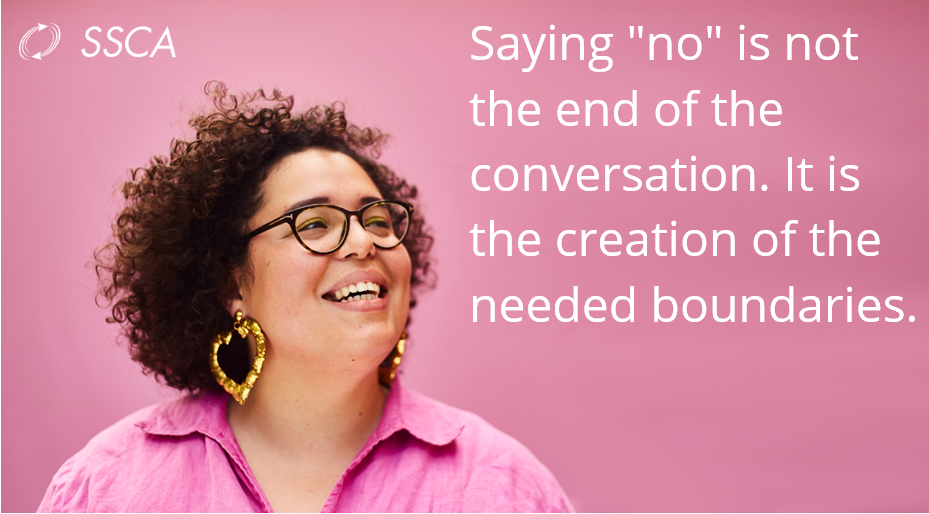[vc_row][vc_column][vc_column_text]
By Tom Shenk
Can people say “no” in your organization? What happens when dissent is offered to the stated or implied direction? Is there healthy dissent or an appreciation for disagreement in your company’s culture? All too often, the answer to these questions is “no” or “not enough.”
The purpose of this brief article is to examine the outcomes of a conflict avoidant organizational environment. Are people able to say “no” to your requests as their boss? Can you say “no” to your boss? What happens when a fellow worker says “no” to your request for help?
“No” doesn’t mean “I won’t” and rarely is it an absolute (other than in relation to moral or ethical standards. “No” can:
- signify disagreement.
- be a starting place to find a negotiated “yes.”
- be the beginning for good dialogue and conversation.
- be a way to avoid over-commitment and manage priorities.
- be an attitude coming from a positive and constructive place.
- be the keeper of organizational and personal integrity.
- be the measure of personal and organizational self esteem.
- uncover personal agendas and expose differences between people.
“No” is not simply a word, but a concept. Each one of the following “no” statements are designed to promote higher quality conversations by putting real thoughts and feelings on the table.
- “I’d like to help you on your project right, but right now I am unable to.”
- “You’re aware that what you’re giving me as a priority today is different from what you gave me yesterday.”
- “The goals we have are unrealistic.”
- “I am concerned the plan of attack we put together last month will not work.”
- “I can’t do that. It is counter to our company values.”
- “This meeting is a waste of time and off-target.”
- “You can demand (loudly) that I ‘just make it happen’ all you wish, but we still don’t have the necessary resources to reach our target.”
- “I know what you would like to have happen, but I’m just unable to do it given the existing circumstances.”
- “I understand your point of view; it’s just that I do not agree with it.”
The ability to say “no” is not the end of the conversation, nor is it an end result, but it creates the needed boundaries. “No” provides opportunities for conversation, negotiation, coaching, growth, and improvement.
When the differences are worked out, “no” creates honest, open, and non-political relationships while fostering an achievement culture.
When you are about to say “yes,” ask yourself: “What is the cost? Can I say ‘no?’”
[/vc_column_text][/vc_column][/vc_row]

